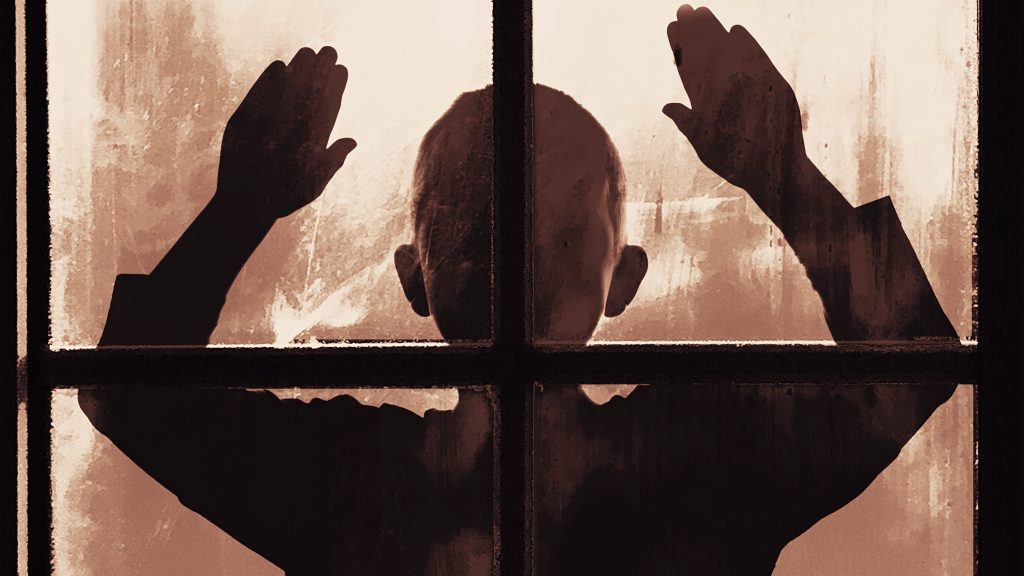As children grow and become more independent and mature, many parents, particularly those with jobs or other responsibilities, are faced with the same dilemma:
At what age can children be legally allowed to stay “home alone”?
Is there one rule, one federal law for the whole of the U.S.? Is it decided by which state you live in? If there are laws in your state, what happens if your child is found by the authorities, and they’re too young to be home alone? Or are there no rules, no legal restrictions, and it’s left entirely up to the parent to decide?
Before you consider leaving your child without adult supervision, be sure you know the exact laws that apply, and what minimum age your child needs to be.
The aim of this report is to provide you with all the relevant information you need to make the right decision, including all the applicable laws and guidelines that exist in your state, and the legal consequences of not abiding by the relevant state law.
In addition, we’ll provide you with practical advice on how to tell if your child is responsible enough to be left home alone, and expert tips for leaving a child home alone for the very first time.
Existing U.S. State Laws for Leaving Children “Home Alone”
The table below provides the legal minimum ages that apply for every state in the U.S. If there is no legal minimum age requirement in a specific state, this is denoted by “n/a” (no age).
As you can see, over two-thirds of U.S. states have no age restriction whatsoever. This is surprising given that every state in the U.S. has the legal authority to remove children from their family home if it is believed the child has been neglected, and may be in danger.
In the U.S. states where there is no age restriction, it is worth remembering that the National SAFEKIDS Campaign recommends that no child under the age of 12 be left home alone.
Alternatively, you can seek guidance from the U.S. Children’s Bureau at their online Child Welfare Information Gateway.
Minimum Age a Child Can Legally Be Left “Home Alone” by U.S. State |
|||||
U.S. States with Minimum Age Requirement by Law |
|||||
| U.S. State |
Minimum Age |
Legal Source |
U.S. State |
Minimum Age |
Legal Source |
| Illinois | 14 | Source | Tennessee | 10 | Source |
| Colorado | 12 | Source | Washington | 10 | Source |
| Delaware | 12 | Source | North Dakota | 9 | Source |
| Mississippi | 12 | Source | Georgia | 8 | Source |
| Michigan | 11 | Source | Maryland | 8 | Source |
| New Mexico | 10 | Source | North Carolina | 8 | Source |
| Oregon | 10 | Source | Kansas | 6 | Source |
| U.S. States with No Minimum Age Requirement | |||||
| U.S. State |
Minimum Age | Legal Source |
U.S. State |
Minimum Age |
Legal Source |
| Alabama | n/a | Source | Nebraska | n/a | Source |
| Alaska | n/a | Nevada | n/a | Source | |
| Arizona | n/a | Source | New Hampshire | n/a | Source |
| Arkansas | n/a | Source | New Jersey | n/a | Source |
| California | n/a | Source | New York | n/a | Source |
| Connecticut | n/a | Source | Ohio | n/a | Source |
| Florida | n/a | Source | Oklahoma | n/a | Source |
| Hawaii | n/a | Source | Pennsylvania | n/a | Source |
| Idaho | n/a | Source | Rhode Island | n/a | |
| Indiana | n/a | Source | South Carolina | n/a | Source |
| Iowa | n/a | Source | South Dakota | n/a | Source |
| Kentucky | n/a | Texas | n/a | Source | |
| Louisiana | n/a | Source | Utah | n/a | Source |
| Maine | n/a | Source | Vermont | n/a | |
| Massachusetts | n/a | Source | Virginia | n/a | Source |
| Minnesota | n/a | Source | West Virginia | n/a | |
| Missouri | n/a | Source | Wisconsin | n/a | Source |
| Montana | n/a | Source | Wyoming | n/a | |
| Note: n/a = No Age | Source: World Population Review | ||||
| Important: Please note that city and county ordinances within each state may have more definitive and more restrictive laws. Call your State Department for Health Services or local child welfare agency to learn about the age legalities and guidelines in your area (you will find their contact details further into this article). | |||||
Virtually all U.S. state governments offer their own guidance to parents as to the age, maturity and level of independence needed for children to be left “home alone,” even if, as in the case of 39 states, there is no set legal minimum age requirement.
Those U.S. states who have set a legal age into their state laws – Illinois, Mississippi, Delaware, Colorado, Michigan, Washington, Tennessee, Oregon, New Mexico, North Dakota, North Carolina, Maryland, Georgia and Kansas – use these ages to also determine the age it is appropriate for kids to start babysitting.
Furthermore, most states also look at the child’s maturity level with being left “home alone.”
What Do “Home Alone” Laws Say?

Those U.S. states with legal minimum ages for children to be when left “home alone” have the specific age written into their state laws on child abuse and neglect.
We’ll use Illinois as the example state as to what “home alone laws” actually say, including the important points around the legal possibility of neglect.
Here’s the relevant parts of the specific Illinois state law on child abuse and neglect:
Illinois Compiled Statute on Neglected or Abused Minor
Illinois Compiled Statute: Neglected or Abused Minor(705 ILCS 405/2-3) (from Ch. 37, par. 802-3), Sec. 2-3. Neglected or abused minor. “Those who are neglected include: Any minor under the age of 14 years whose parent or other person responsible for the minor’s welfare leaves the minor without supervision for an unreasonable period of time without regard for the mental or physical health, safety, or welfare of that minor. Whether the minor was left without regard for the mental or physical health, safety, or welfare of that minor or the period of time was unreasonable shall be determined by considering the following factors, including but not limited to: (1) the age of the minor; (2) the number of minors left at the location; (3) special needs of the minor, including whether the minor is a person with a physical or mental disability, or otherwise in need of ongoing prescribed medical treatment such as periodic doses of insulin or other medications; (4) the duration of time in which the minor was left without supervision; (5) the condition and location of the place where the minor was left without supervision; (6) the time of day or night when the minor was left without supervision; (7) the weather conditions, including whether the minor was left in a location with adequate protection from the natural elements such as adequate heat or light; (8) the location of the parent or guardian at the time the minor was left without supervision, the physical distance the minor was from the parent or guardian at the time the minor was without supervision; (9) whether the minor’s movement was restricted, or the minor was otherwise locked within a room or other structure; (10) whether the minor was given a phone number of a person or location to call in the event of an emergency and whether the minor was capable of making an emergency call; (11) whether there was food and other provision left for the minor; (12) whether any of the conduct is attributable to economic hardship or illness and the parent, guardian or other person having physical custody or control of the child made a good faith effort to provide for the health and safety of the minor; (13) the age and physical and mental capabilities of the person or persons who provided supervision for the minor; (14) whether the minor was left under the supervision of another person; (15) any other factor that would endanger the health and safety of that particular minor.” |
According to the Illinois Department of Children & Family Services (DCFS), they have “the primary responsibility of protecting children through the investigation of suspected abuse or neglect by parents and other caregivers in a position of trust or authority over the child.”
If someone believes a child in Illinois is either being abused or neglected, they are asked to report their concerns immediately. The DCFS advises people to either:
- Call the 24-hour Child Abuse Hotline at 800-25-ABUSE (800-252-2873) if you suspect that a child has been harmed or is at risk of being harmed by abuse or neglect.
- If you believe a child is in immediate danger of harm, call 911 first.
All calls are strictly confidential.
In non-emergency situations, anyone may report suspected child abuse or neglect using Illinois’s new Online Reporting System, which is to be used for non-life threatening and non-emergency incidents of abuse or neglect of a child.
However, those people making false claims using either reporting method are liable to be charged with a Class 4 disorderly conduct felony.
It is important for parents to understand that it’s not the aim of the DCFS (or any other relevant state department responsible for the safety of children) to punish parents who break the law.
For example, in cases where parents feel forced to leave their child as they must go to work for financial reasons and they cannot afford childcare, state departments will work with families to find a suitable resolution – this could involve increasing benefits, or the provision of childcare at a vastly reduced rate.
“Home Alone”: U.S. Federal Laws on Child Neglect

Under Federal law, and depending on the laws and child protective policies in your state, leaving a young child unsupervised may be considered neglect, especially if doing so places the child in danger.
If you are concerned about leaving your child home alone, and it being perceived as child abuse and neglect, please see the official Definitions of Child Abuse and Neglect page at the Child Welfare Information Gateway website, part of the Children’s Bureau, an office of the Administration for Children & Families.
Federal legislation is there to provide guidance to individual U.S. states by identifying a minimum set of acts or behaviors that define child abuse and neglect. This comes under The Federal Child Abuse Prevention and Treatment Act (CAPTA), which defines child abuse and neglect as, at minimum:
- “Any recent act or failure to act on the part of a parent or caretaker which results in death, serious physical or emotional harm, sexual abuse or exploitation”; or
- “An act or failure to act which presents an imminent risk of serious harm.”
As we mentioned earlier, if you are in any doubt whatsoever about leaving your children unsupervised, you need to contact the relevant authority – the Child Welfare Agency – in your state of residence.
Here is a resource table with all the state Child Welfare Agencies in the U.S. to help you get in touch with the relevant agency – simply click on the link to access the agency’s contact details.
Contact Information for Local and County Child Welfare AgenciesSource: https://www.childwelfare.gov/ |
||
| U.S. State | Department | Link |
| Alabama | Department of Human Resources | dhr.alabama.gov |
| Alaska | Department of Health & Social Services | dhss.alaska.gov |
| Arizona | Department of Child Safety | dcs.az.gov |
| Arkansas | Department of Human Services | humanservices.arkansas.gov |
| California | Department of Social Services | cdss.ca.gov |
| Colorado | Department of Human Services | cdhs.colorado.gov |
| Connecticut | Department of Children & Families | portal.ct.gov |
| Delaware | Department of Services for Children, Youth & Families | https://kids.delaware.gov |
| District of Columbia | Child & Family Services Agency | https://cfsa.dc.gov/ |
| Florida | Department of Children & Families | myflfamilies.com |
| Georgia | Division of Family & Children Services | dfcs.georgia.gov |
| Hawaii | Department of Human Services | humanservices.hawaii.gov |
| Idaho | Department of Health & Welfare | healthandwelfare.idaho.gov |
| Illinois | Department of Children & Family Services | illinois.gov |
| Indiana | Department of Child Services | in.gov |
| Iowa | Department of Human Services | dhs.iowa.gov |
| Kansas | Department for Children & Families | dcf.ks.gov |
| Kentucky | Cabinet for Health & Family Services | prd.webapps.chfs.ky.gov |
| Louisiana | Department of Children & Family Services | dss.state.la. |
| Maine | Department of Health & Human Services | gateway.maine.gov |
| Maryland | Department of Human Services | dhs.maryland.gov |
| Massachusetts | Department of Children & Families | mass.gov |
| Michigan | Department of Health & Human Services | .michigan.gov |
| Minnesota | Department of Human Services | mn.gov |
| Mississippi | Department of Child Protection Services | mdcps.ms.gov |
| Missouri | Department of Social Services | dss.mo.gov |
| Montana | Department of Public Health & Human Services | dphhs.mt.gov |
| Nebraska | Department of Health & Human Services | dhhs.ne.gov/ |
| Nevada | Department of Health & Human Services | dcfs.nv.gov |
| New Hampshire | Department of Health & Human Services | dhhs.nh.gov |
| New Jersey | Department of Children & Families | nj.gov/ |
| New Mexico | Children, Youth & Families Department | cyfd.org |
| New York | Office of Children & Family Services | ocfs.ny.gov |
| North Carolina | Department of Health & Human Services | ncdhhs.gov |
| North Dakota | Department of Human Services | nd.gov |
| Ohio | Department of Job & Family Services | jfs.ohio.gov |
| Oklahoma | Department of Human Services | oklahoma.gov |
| Oregon | Department of Human Services | oregon.gov |
| Pennsylvania | Department of Human Services | humanservices.state.pa |
| Puerto Rico | Departamento de la Familia | agencias.pr.gov |
| Rhode Island | Department of Children, Youth & Families | dcyf.ri.gov |
| South Carolina | Department of Social Services | dss.sc.gov |
| South Dakota | Department of Social Services | dss.sd.gov |
| Tennessee | Department of Children’s Services | tn.gov |
| Texas | Department of Family & Protective Services | dfps.state.tx.us |
| Utah | Department of Child & Family Services | dcfs.utah.gov |
| Vermont | Department for Children and Families | dcf.vermont.gov |
| Virginia | Department of Social Services | dss.virginia.gov |
| West Virginia | Department of Health & Human Resources | dhhr.wv.gov |
| Washington | Department of Social & Health Services | fortress.wa.gov |
| Wisconsin | Department of Children & Families | dhs.wisconsin.gov |
| Wyoming | Department of Family Services | dfs.wyo.gov |
Is Your Child Responsible Enough to Be Left “Home Alone”?

Leaving a child at home is a big deal – it’s certainly a big deal for the child – and it needs serious consideration before you begin to do so. You will need to answer the following questions about your child’s level of responsibility, their level of maturity, and what life skills they have already learned.
However, the first question is one for your child, and it’s this:
1. Are you happy to be left “home alone”?
Although most parents think their child would jump at the chance of the most freedom they’ve probably ever had, in reality, many children are worried or even scared by the prospect of no adult being around to rely on.
Now, let’s get to your questions, and the first for you is the one asked in the title of this section:
2. Is your child responsible enough to be left “home alone”?
To answer this, you’ll need to honestly and truthfully answer a number of relevant questions yourself; these are:
- Does your child willingly follow your rules without being reminded?
- Does your child generally make good, and understand the consequences of poor decisions?
- Does your child demonstrate good impulse control?
- Is your child a problem solver?
- Can your child follow a set routine?
- Is your child generally aware of their surroundings, or do they get tunnel vision at times?
Here’s another important question you need to answer truthfully:
3. Is your child mature enough to be left home alone?
You can gauge a child’s level of maturity by considering these aspects:
- Is your child able to care for themselves?
- Does your child have a good sense of judgment?
- How does your child respond to urgent situations?
Lastly, you need to consider:
4. What living skills does your child have?
Once you’ve determined that your child is both responsible and mature enough to be left alone, it’s time to decide if they have the appropriate skills required to function on their own, and look after themselves.
These are practical questions you need to answer – with your child, of course – to see if your child has the necessary skills to be left alone for a certain length of time in your house.
So, does your child…
- Know how to make a snack for themselves?
- Know who to call in an emergency?
- Know basic first-aid, and where the first-aid kit is located in your home?
- Know where the fire extinguisher is located, and do they know how to use it?
- Know his/her full name, address, and 2 phone numbers of emergency contacts?
- Know his/her parents’ full names?
- Know how and when to call 911, and what information they need to give the dispatcher?
- Know how to operate the microwave?
- Know how to lock and secure all the doors and windows?
- Know what to do if someone comes to the door?
If you can confidently say “yes,” to each of these questions, that’s a great sign your child is prepared to be left alone at home for a short period of time without you.
If you are not entirely convinced your child has all of these living skills, keep up their “training.” By teaching your child these skills, you’ll not only prepare him/her to stay home alone safely, but you will empower your child to be more confident and more capable.
Expert Advice for Parents with More Than One Child
Obviously, the majority of parents have more than one child, and as most parents already know, when siblings are put together, it can create a whole new dynamic within the household. This means that a child who possesses the skills and behaviors described previously to stay safely at home doesn’t mean they’d be as successful with their sibling or siblings in the house, too.
Furthermore, if “sibling rivalry” is a constant problem in your household, it probably isn’t a good idea to leave them unsupervised for an extended period of time.
So if you have more than one child being left alone in the home, here are a number of things to consider first of all:
- How long do you plan on leaving them alone together?
- What are the ages of the children?
- Can they work collaboratively without one child needing to “take charge”?
- If they do argue, do they use appropriate conflict-resolution tools?
Note: “Appropriate conflict-resolution tools” means simple strategies like the “5 Steps”:
- STOP: Don’t let things get out of control
- SAY: what the conflict is about
- THINK: of positive options
- CHOOSE: a positive option that everyone can agree on
- RESPECT: the opinions of others, even if you can’t agree
One expert method for leaving siblings home together is by not putting one in charge of the others, as that will usually result in sibling competition and resentment. Instead, do this:
Give each child a specific task. For example, one is in charge of making lunch, one is in charge of cleaning up, the other chooses the movie they watch together, or something similar. By doing things in this way, they are working as a team while the parent is away.
Practical Tips & Guidance for Parents Leaving Their Child “Home Alone”

For your first time away, why not have a “trial run”? It’s important you don’t plan on being gone for longer than 2 hours.
Before you leave, make sure any and all hazards are locked up, such as alcohol, medications and sharp knives. No matter how much you trust your child, you’ll have greater peace of mind knowing you’ve left them in a safe environment.
Lastly, lay out some simple ground rules, and have them posted up somewhere as a reminder, including:
- No friends allowed
- Don’t open the door for anyone
- Never tell anyone you’re home alone, even your friends, and don’t post it on social media
- If there’s an emergency, call 911 first, and then a parent
- Don’t leave the house
Adolescent Mental Health Treatment at Avery’s House, Arizona
Avery’s House, a residential treatment center for youth, located in Apache Junction, Arizona, understands completely that adolescence isn’t the same for everyone! For some kids, and their parents, it can be the most challenging and vulnerable phase of their lives.
At Avery’s House, we’re passionate about helping teens, young adults, and their families to develop the skills needed to navigate the day-to-day struggles they face.
Contact us today to learn more about mental health treatment options, verify your insurance coverage, and see if Avery’s House is right for you.
